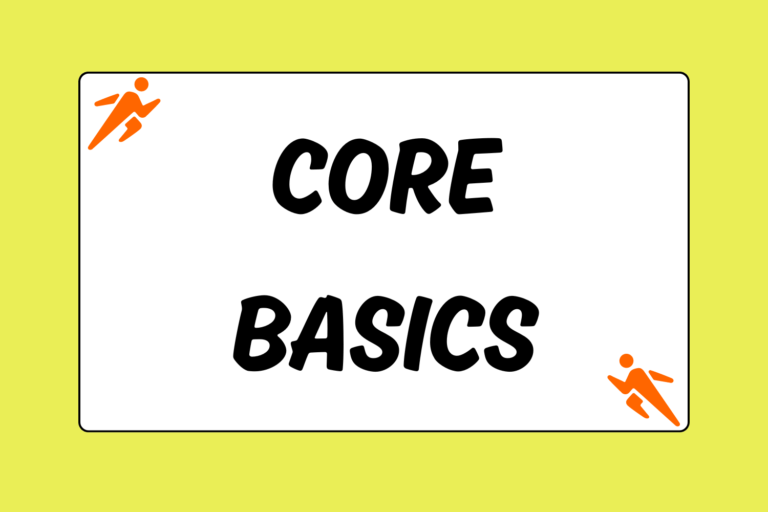The nutritional motto for many runners can be summed up in in the famous quote from the cult-classic novel, Once a Runner: “If the furnace is hot enough, anything will burn.”
Most athletes do have an unusually hot “furnace” (aka, high metabolism). But what you put into that furnace matters, regardless of how efficiently it may burn. Runners need a diet full of complex carbohydrates, protein, antioxidants, and many more minerals and nutrients to properly fuel their body and recover from the continuous wear and tear of daily training.
Below is a list of some of the foods that will give runners the most bang for their buck. Do not, however, feel limited by these specific examples. The classic food pyramid is still one of the best models to guide how to shape your diet–just think of these foods as slightly larger blocks in the foundation.
Oh, and don’t forget the ice cream (calcium, right?)!
Bananas
Bananas are a perfectly packaged power food. They are easy to bring in the car, to work, or in your backpack for after a run. Each banana is packed with carbohydrates and potassium, an important mineral that athletes lose through sweat, that regulates muscle contraction and blood pressure. To top it off, bananas have a bit of protein that will help begin muscle repair after exercise.
Mixed Berries
The dark red/purple hue of most berries contains a powerful compound called anthocyanins. These are antioxidants that help post-run recovery and muscle repair — all for only 60 calories a cup.
Fun Fact:
What is an Antioxidant? Antioxidants are dietary substances, including vitamins B, C and E (among many others), that can prevent or repair damage in to the cells in your body.
Think of an apple: As it ages or undergoes stress (for humans, stress can take the form of exercise, pollution, sleep deprivation, processed food, etc.), it starts to brown. But if you dip a piece of the browning apple in orange juice with vitamin C, it will stay white or lighten in color.
Antioxidants have the same effect on the cells in the human body.
Mixed Greens
Mixed greens are a great way to add a variety of nutrients and flavors to any meal. There are many different kinds: radicchio, butter lead, endive, mache, and spinach (just to name a few). Each type has a unique blend of power antioxidants called phytonutrients, which can help counter the release of age-related stress hormones and prevent muscle damage.
Broccoli
Broccoli, only about 30 calories per cup, is chocked full of vitamin C, potassium, fiber, protein, and phytonutrients.
Black Beans
One cup of black beans provides 30-percent of your daily protein, over 60-percent of the recommended fiber, and a significant amount of plant-based iron. It is also a low glycemic index food, which means that the carbohydrate found in the bean is released slowly into the body, balancing blood-sugar levels and controlling energy consumption.
Almonds
Nuts are a healthy addition to any athlete’s diet. Almonds, in particular, have a lot to offer a runner looking for a powerful energy source. Just a few handfuls a day of this nutrient-rich food will provide a significant amount of protein, calcium, and importantly, vitamin E–an often overlooked antioxidant.
Sweet Potatoes
Usain Bolt was raised on sweet potatoes. Need we say more?
This super food is full of important compounds, including beta-carotene (an antioxidant), vitamin C, potassium, iron, plus manganese and copper–two minerals that are critical for healthy muscle function. Some studies also show that sweet potatoes may even help boost testosterone levels.
Whole Grain Breads/Pastas
Carbohydrates are fuel. Runners should get their required carbs from whole grains, not refined products made from simple sugars. Eating whole grains will keep blood-sugar levels balanced and cholesterol levels down, while also giving you a daily dose of fiber and B-vitamins that help metabolize energy.
Oatmeal/Whole Grain Cereals
Cereal is a great source of complex carbohydrates and fiber. It is an easy, convenient way to load up on energy, and the calcium and protein from the milk complements the nutrients found in the whole grains. But make sure to stay away from the overly sweetened options on the market today.
Oatmeal also helps regulate the metabolism of energy. People who eat the grain three hours before exercise have been shown to take more time to reach exhaustion than those who eat refined, sugar-based products.
Eggs
One egg provides the average person with about 10-percent of the daily required protein plus the amino acids necessary for successful muscle repair. Eggs also contain vitamin K (good for healthy bones) and are easy to prepare or mix into dishes.
Salmon
This smart fish supplies about 30 grams of protein per four-ounce serving and is also a source of omega-3 fats, a vital part of any athlete’s diet. The unique fat-compound decreases the inflammatory responses in the body, protects the movement of soft tissue, and helps maintain healthy blood circulation.
People who take omega-3 fat supplements also see an improvement in symptoms of exercised induced asthma after only three weeks.
Chicken
Runners need about 50 to 74-percent more protein than the average person to rebuild muscle and ensure recovery after each workout. Chicken is one of the most efficient, low-fat ways of getting that sometimes daunting amount, since one four-ounce serving has about 50-percent of an average runner’s daily protein requirement. Chicken also contains selenium, which protects muscles from damage, and niacin, a B-vitamin that helps regulate the burning of fat during exercise.
Lean Beef
Red meat is nature’s best source of iron and zinc, two of the most important minerals in an athlete’s diet. Although you can get iron from plant sources (beans, spinach, etc), red meat is really the only source for the most easily absorbed form, called hemi-iron.
You would have to eat 20 pounds of spinach to equal the amount of iron in four ounces of red meat. Even then, absorbtion rates from vegtables like spinach are low, due to the combination of other nutrients present in most leafy greens. To be safe, all runners (especially women) should try and get around two or three servings of red meat each week.
Fun Fact:
Turmeric, a spice found in curry dishes, does more than add flavor. Studies have found that it can have more anti-inflammatory benefits than many over-the-counter drugs and without any of the harmful side effects. It is a natural pain killer.
It also seems to help recovery, promote fat burning, and increase joint protection. Wow. Your spice rack just got a lot more interesting.
Skim Milk/Yogurt
It is very important for runners to get enough calcium to help maintain strong, healthy bones. Skim milk is an easy addition to almost any meal (as a drink or on cereal), and yogurt is perfect for eating on the go. Both provide huge amounts of calcium, as well as readily absorbed milk-proteins. Yogurt also contains probiotics, small natural bacteria that aid with digestion.
Keep in mind that there are no nutritional downsides to choosing the lower or non-fat versions of most dairy products, so choose skim or one-percent whenever possible.
Green Tea
Basically a super-food in liquid form, green tea is full of a unique antioxidant called epigallocatechin (EGCG) that some studies have shown may improve endurance, reduce muscle damage, and increase fat burning during exercise.
Olive Oil
Olive oil is a healthy fat packed with antioxidants that helps prevent injury and acts as a natural anti-inflammatory in muscle tissue (including the heart). The fat also helps soft tissues, like tendons, move more fluidly.
Dark Chocolate
Dark chocolate is full of antioxidants called flavonols, which help balance hormone levels that may otherwise get out-of-wack with heavy exercise. That balance helps control inflammation and the circulation of healthy blood throughout the body. It also tastes really, really good.
Stay Balanced
In the end, the best thing you can do is eat a balanced and well-rounded diet. Remember, food is fuel!





